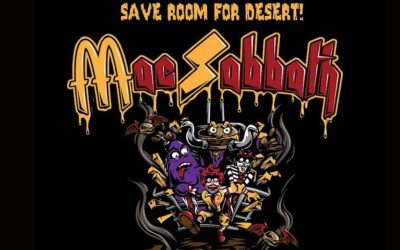Plaintiffs suing Ticketmaster for alleged anti-competitive behavior have alleged that the company’s arbitration service is biased against them, and should be forced to hand over additional documentation from its work on behalf of the Live Nation-owned ticketing giant.
Ticketmaster and its parent have repeatedly been sued for alleged anti-competitive behavior by consumers, but the companies have largely succeeded in getting such lawsuits removed from the court system to private arbitration, which is a blanket provision consumers have no choice but to agree to during the ticket purchase process. The removal of the disputes to behind closed doors has kept Ticketmaster and Live Nation from having to directly confront the accusations in open court, and now consumers are saying that its hand-picked arbitration vendor isn’t ruling fairly on disputes.
According to Complete Music Update, New Era ADR is Ticketmaster’s arbitration vendor, recently replacing JAMS in that role. Plaintiffs suing Ticketmaster argue that the reason Live Nation and Ticketmaster moved to that provider due to its willingness to tilt the arbitration process even further against consumers, denying them a fair and impartial judgment in their disputes.
“Defendants switched from JAMS, an established arbitration provider, to New Era, a two-year-old start-up that touts its ties to defendants and has little experience administering arbitrations,
” according to Law360. “New Era now seeks to flaunt the court’s order by producing only cherry-picked materials that it selected through a black-box search process”.
New Era ADR has pushed back against the sharing of specific documents regarding its agreement with Ticketmaster, including details on the specific process of its arbitration decision-making and its connections with Ticketmaster. It has been pushing to cut back a subpoena from the court that orders it to share such documents with ticket-buyers involved in the lawsuit, which is what the court filing is responding to.
While Live Nation has pushed to have the most recent set of lawsuits from consumers dismissed entirely, lawyers from Quinn Emmanuel Urquhart & Sullivan have asked the Ninth Circuit appeals court to overturn the decision forcing consumers to the arbitration process, which is where the fight continues.
“The [new] agreement … requires consumers to engage in a novel and one-sided process that is tailored to disadvantage consumers,” wrote the Quinn Emanuel attorneys in their initial filing on the case. “The … agreement skews the odds so egregiously in defendants’ favor through its defense-biased provisions, and is imposed in such a procedurally unfair manner, that it is permeated with unconscionability to a far greater degree than the prior … agreement.”
Scrutiny over Live Nation and Ticketmaster’s operations relative to competition and monopoly status has been widespread since the two companies merged in a blockbuster deal approved in 2010. Rep. Bill Pascrell has famously pursued better regulation of what he plainly called “Live Nation and Ticketmaster’s abuse of their monopoly power” in a 2018 New York Times Op-Ed. Artists rights groups, economists, and consumers filing lawsuits have also tried to push back against the company, as did the Federal Trade Commission itself, but even that just amounted to a slap on the wrist by way of a fine and extension of an existing consent decree. Even a prosecution over employees illegally accessing a competing company’s computer systems to gather critical data and gain a competitive advantage – a company that Live Nation subsequently purchased in order to end civil litigation alleging data espionage – was sidestepped via the payment of a $10 million fine.
More recently, Rep. Pascrell wrote a letter demanding answers regarding Ticketmaster’s surge “dynamic pricing” practices in the wake of massive backlash to the practice following the sale of Bruce Springsteen 2023 tour tickets, while the American Antitrust Institute set an October event featuring U.S. Sen. Amy Klobuchar to discuss what it characterizes as the monopoly at the center of live entertainment and how it might be addressed.




